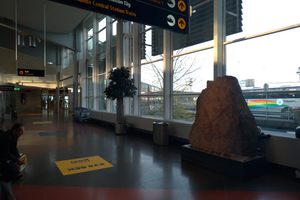About
A town hall is often intended to represent the city that it is in—a point of local pride, as large as possible given the local finances. But when the town is tiny and money short? You might just end up with Europe's smallest city hall.
Sigtuna was once the capital of Sweden and one of the country's biggest and most bustling cities. However, that was a millennium ago, and the capital has since moved twice, to from Uppsala and then Stockholm. When the king left, most of the rich and influential people went with him. Within several centuries, the town was little more than a countryside village, its glory being a matter for the history books.
There was very little money to update its buildings, including the town hall. Accounts from Mayor Eric Kihlman from 1737 describe the building as being in an absolutely deplorable state, without proper heat.
He believed that despite Sigtuna's size, it still needed a town hall to be proud of. He even designed it himself.
Due to the limited resources, it would be much smaller than the old hall, and some parts would be reused, such as the tower and most of the wood. The rest of the materials were sourced from the town, and it was completed and opened in 1744. The next day a fire broke out and devastated a large part of the town, leaving 21 families homeless. Fortunately the new town hall was spared.
It has two rooms: the council hall used for meetings and debates (still intact as it was in 1750s) and a police room with two cells, though they were removed in the 1930s. Today it is used as a small museum.
Related Tags
Know Before You Go
The Town Hall is open Mondays in January 12-16.
Open daily June 1 to August 31, 12-16 o’clock and for pre-booked tours.
There is a very cool secret compartment behind the first window shutter to the left of the door. Look behind it and you will see a small seam in a plank that can be rotated. This used to be the place where the key was hung.
Community Contributors
Added By
Published
August 25, 2020































